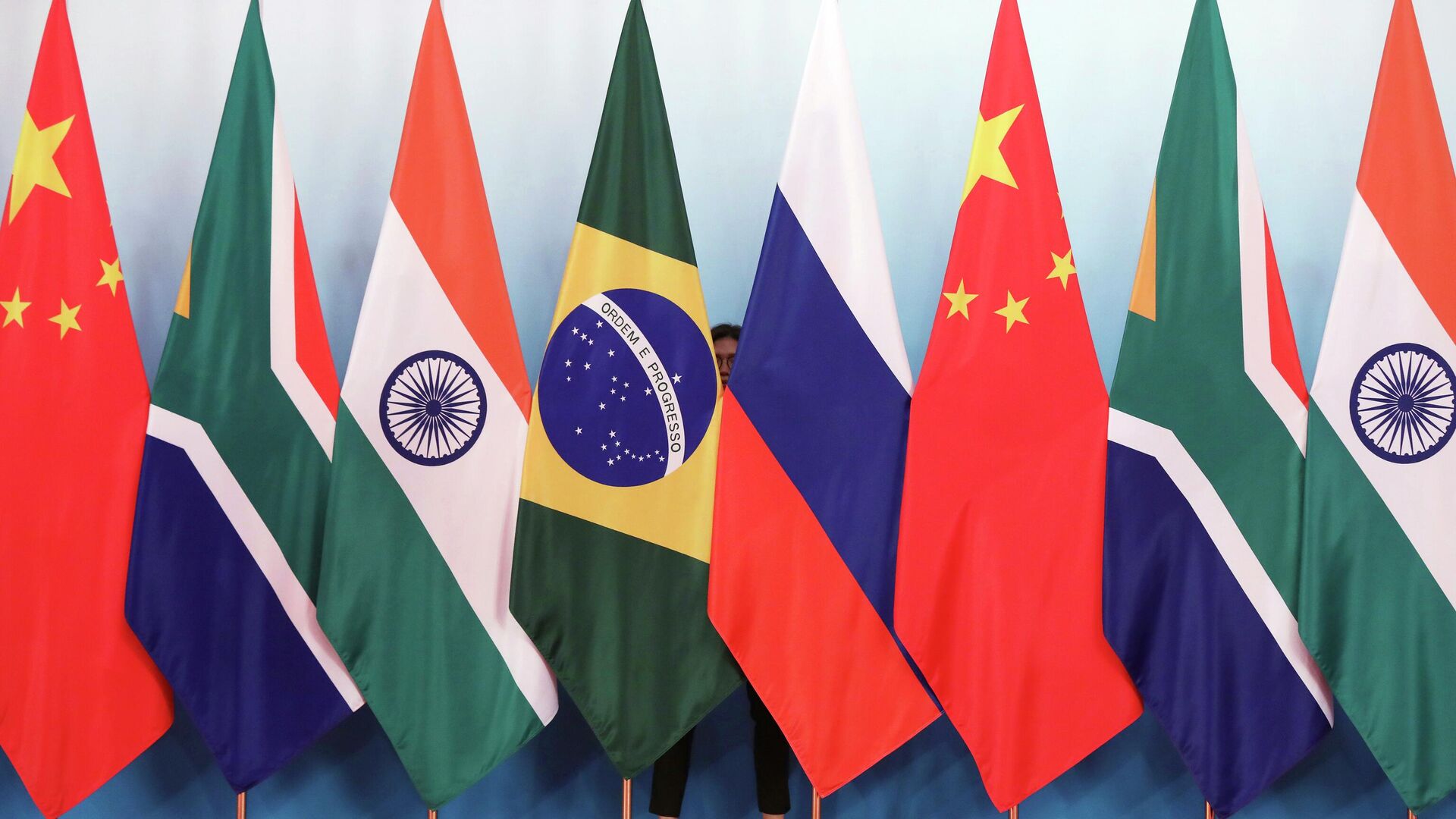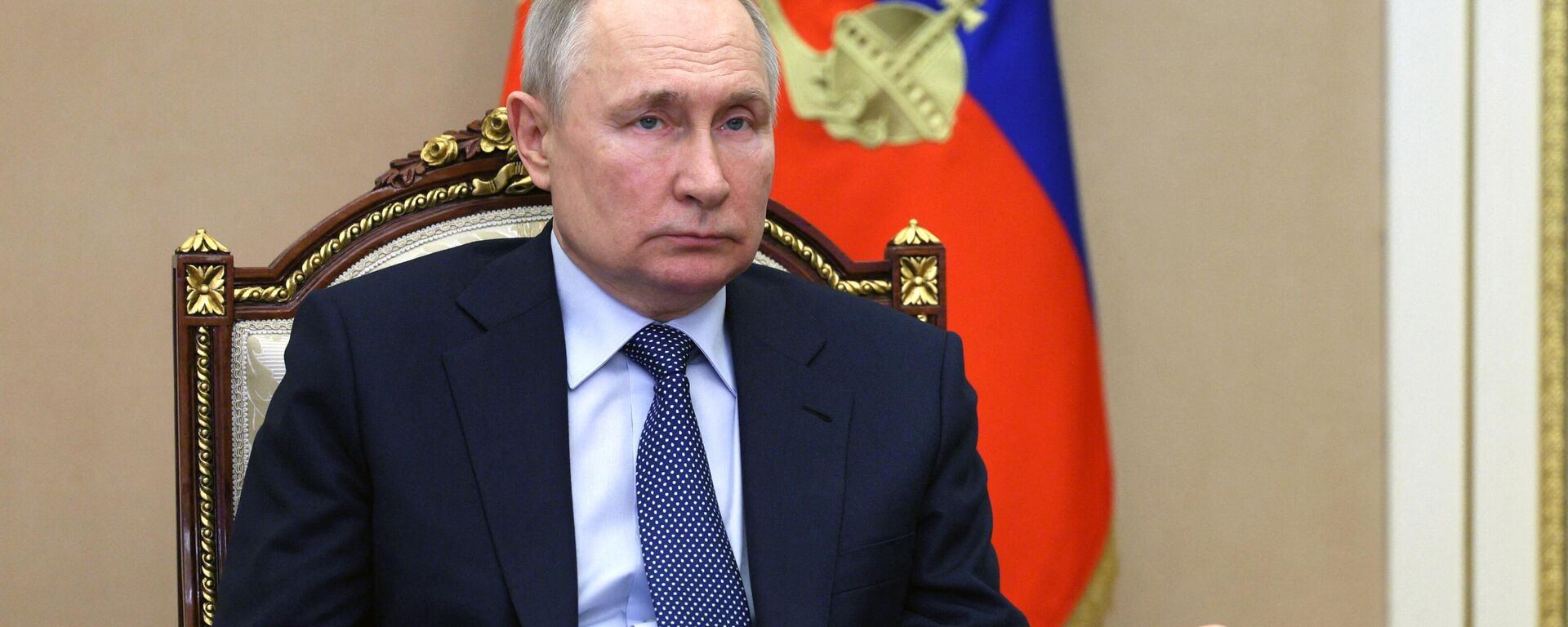https://sputnikglobe.com/20230411/wests-unilateral-sanctions-could-cause-countries-to-drop-dollar---african-expert-1109363779.html
West's Unilateral Sanctions Could Cause Countries to Drop Dollar - African Expert
West's Unilateral Sanctions Could Cause Countries to Drop Dollar - African Expert
Sputnik International
The next summit of BRICS (a bloc of major emerging economies consisting of Brazil, Russia, India, China, and South Africa) will be held in South Africa at the... 11.04.2023, Sputnik International
2023-04-11T18:32+0000
2023-04-11T18:32+0000
2023-04-11T18:32+0000
africa
insight
africa insight
brics
us
dollar
ditching dollar
https://cdn1.img.sputnikglobe.com/img/07e6/0b/01/1102914691_0:160:3073:1888_1920x0_80_0_0_59e38c0ffd640d1997f88b70232a3e51.jpg
Unilateral sanctions, such as the ones imposed by the US, may only push countries towards using new currencies instead of the US dollar, Thembinkosi Bonakele, Witwatersrand University, ex-commissioner at the Competition Commission of South Africa, told Sputnik.The expert stated that such unilateralism in terms of sanctions affects countries greatly, adding that it is the UN's task to overview and manage sanctions regimes towards countries.As many nations, not only in Africa, but also all across the globe, have in recent years and months expressed eagerness to join BRICS, Bonakele outlined that in the future, the BRICS platform will become even more desirable due to its multilateral and diverse nature.Bonakele stressed that he expects the BRICS agenda to include trade in addition to global politics in the future, adding that the multilateral cooperation format, such as BRICS, has a potential still unexploited.
https://sputnikglobe.com/20230401/win-win-partnership--expert-on-africa-in-new-russian-foreign-policy-doctrine-1109023285.html
africa
Sputnik International
feedback@sputniknews.com
+74956456601
MIA „Rossiya Segodnya“
2023
News
en_EN
Sputnik International
feedback@sputniknews.com
+74956456601
MIA „Rossiya Segodnya“
Sputnik International
feedback@sputniknews.com
+74956456601
MIA „Rossiya Segodnya“
ditching dollar, brics members, brics countries, us dollar
ditching dollar, brics members, brics countries, us dollar
West's Unilateral Sanctions Could Cause Countries to Drop Dollar - African Expert
The next summit of BRICS (a bloc of major emerging economies consisting of Brazil, Russia, India, China, and South Africa) will be held in South Africa at the end of August this year, and among the issues scheduled for discussion is the creation of a new currency within the bloc.
Unilateral sanctions, such as the ones imposed by the US, may only push countries towards using new currencies instead of the US dollar, Thembinkosi Bonakele, Witwatersrand University, ex-commissioner at the Competition Commission of South Africa, told Sputnik.
"When you have a unilateral decision to sanction, then the countries start wanting to opt out of the systems that would expose them to these kinds of sanctions," the expert outlined. "And this is really where the policy must lead to change, careful. So the movement, I think the consensus around the use of the dollar."
The expert stated that
such unilateralism in terms of sanctions affects countries greatly, adding that it is the UN's task to overview and manage sanctions regimes towards countries.
"And this issue is around, again, unilateralism. You see, a sanctions regime is a very drastic step towards a country and sanctions are better managed through the United Nations. And the UN does have this possibility. We know that it can support sanctions."
As many nations, not only in Africa, but also all across the globe, have in recent years and months expressed eagerness to join BRICS, Bonakele outlined that in the future, the BRICS platform will become even more desirable due to its
multilateral and diverse nature.
Bonakele stressed that he expects the BRICS agenda to include trade in addition to global politics in the future, adding that the multilateral cooperation format, such as BRICS, has a potential still unexploited.



